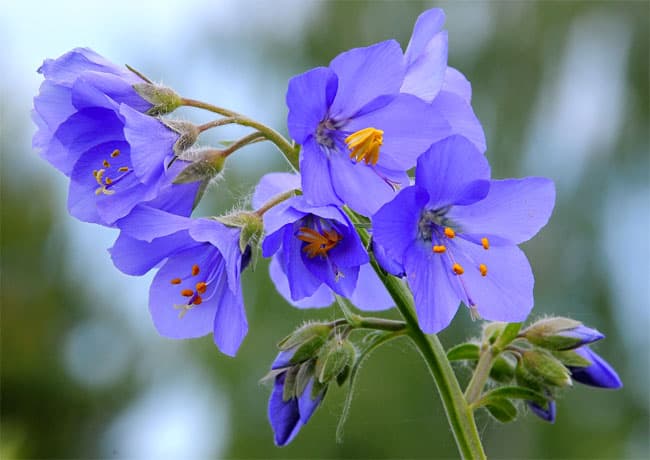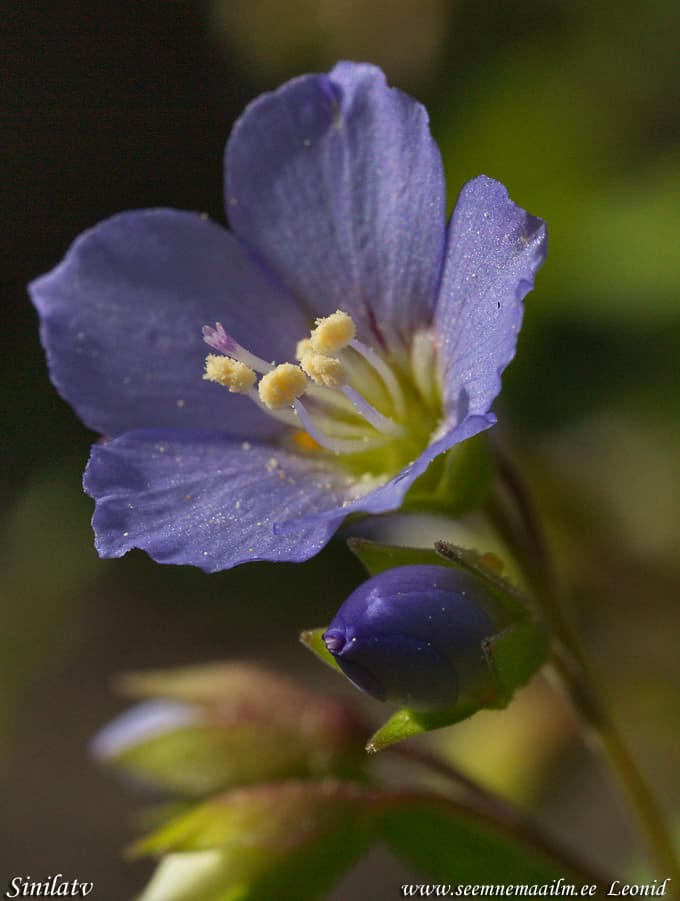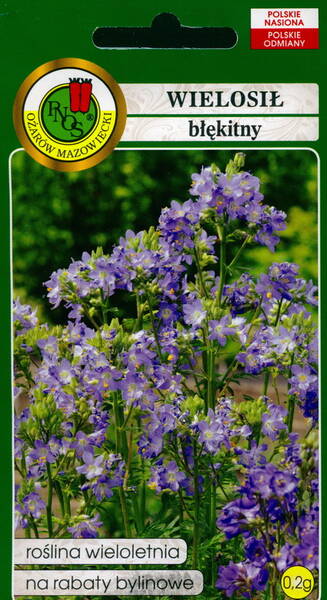Perennial herbaceous plant up to 100 cm high. Stems solitary, erect, branched in the upper part. The leaves are large, smooth, pinnate.
Delicate blue flowers are flat-bell-shaped, up to 1.5 cm in diameter, collected in terminal paniculate inflorescences that emit a pleasant aroma.
The cyanosis blooms in July and blooms for 40-50 days. When growing cyanosis in a garden plot, it should be borne in mind that this is a moisture-loving plant and is found in nature along the banks of rivers, in damp meadows, therefore, places with shallow groundwater are chosen for planting.

It is hardy to zone 2 and is not frost tender. It is in flower from June to July, and the seeds ripen in July. The flowers are hermaphrodite (have both male and female organs) and are pollinated by Bees.
The plant prefers light (sandy) and medium (loamy) soils and requires well-drained soil. The plant prefers acid, neutral and basic (alkaline) soils.
It can grow in semi-shade (light woodland) or no shade. It requires moist soil.
Habitats and Possible Locations: Meadow, Woodland, Sunny Edge, Dappled Shade, Shady Edge.
Cultivation details: a very easily grown plant, it prefers a moist well-drained fertile soil in sun or semi-shade. Dislikes damp or heavy soils, though it tolerates alkaline conditions. Hardy to at least -20 °C.
A polymorphic species, there are several sub-species and many named forms. Plants are fairly short-lived in cultivation unless they are divided regularly and moved to fresh soil. They can self-sow to the point of nuisance, however and will also survive when growing in lush grass. Cats are strongly attracted by the smell of this plant and will frequently roll on it and injure it.
Propagation Seed - sow spring in a cold frame. Another report says that the seed is best sown in a cold frame in the autumn. When they are large enough to handle, prick the seedlings out into individual pots and plant them out in the summer. Division in early spring or early autumn. Larger divisions can be planted out direct into their permanent positions.


Western polemonium, charity, Jacobs ladder, Greek valerian. Bot. syn.: Polemonium sibiricum D. Don.















